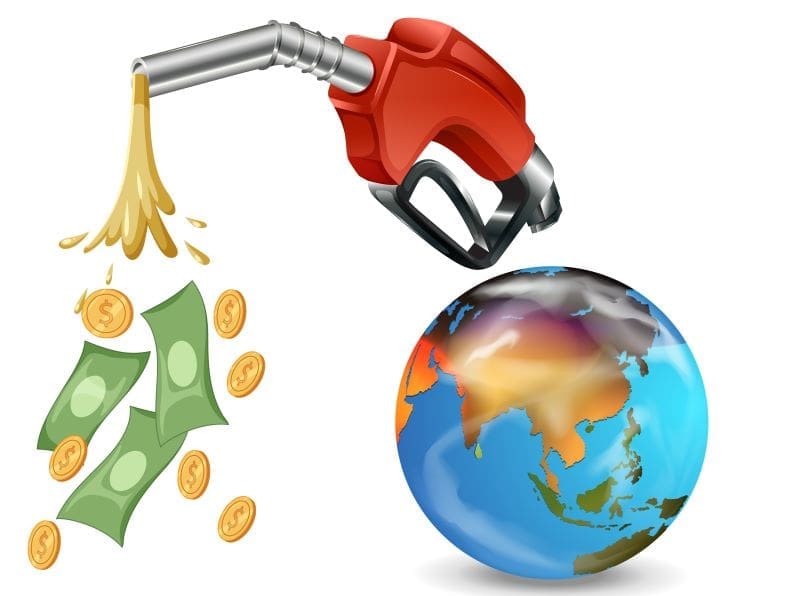Reclaim Finance | Muser NewsDesk
Global banks are continuing to pour far more money into fossil fuels than into clean energy, despite their public commitments to support the energy transition. A new report from Reclaim Finance, produced with partners including WWF, Urgewald and Rainforest Action Network, finds that the world’s 65 largest banks financed more than twice as much fossil fuel activity as sustainable power projects between 2021 and 2024.
The study, titled Banking on Business as Usual, calculates that banks allocated US$3.285 trillion to fossil fuels over that period, compared with US$1.368 trillion for renewable energy and related infrastructure such as solar, wind, and storage. This creates a financing ratio of just 0.42:1, meaning that for every dollar provided to fossil fuels, only 42 cents went to sustainable alternatives.
The imbalance is especially sharp in North America. US and Canadian banks directed roughly four times more finance toward fossil fuels than clean energy, with ratios of 0.25:1 and 0.22:1, respectively. Japanese and Chinese banks fared slightly better at 0.35:1 and 0.52:1, while European banks were ahead with a ratio of 0.70:1. Yet even Europe, the strongest regional performer, remains far short of what international energy experts consider necessary to keep climate targets in reach.
According to the International Energy Agency (IEA), annual investment in fossil fuels must fall by 60 percent by 2030 while funding for alternatives must more than double. This would require a global ratio of six dollars for clean energy for every one dollar that continues to flow into fossil fuels. At current levels, banks are moving in the opposite direction.
Rémi Hermant, campaigner at Reclaim Finance, said: “The energy transition is a major opportunity for banks, but they are still focusing in the wrong direction. The world’s biggest banks are not doing anywhere near enough to support the shift from fossil fuels to sustainable alternatives. While European banks are slightly ahead, they cannot claim to be backing the energy transition while still financing business as usual. Banks must walk the talk: step away from fossil fuels and increase their financing for sustainable alternatives.”

All banks are late
Some banks have started publishing their own ratios. Citi disclosed figures earlier this year, while JPMorgan Chase became the first US bank to do so. Yet transparency does not always mean progress. JPMorgan remains the largest fossil fuel financier and ranks 54th in the report, providing on average five times more finance to fossil fuels than to clean energy. Other banks, including RBC, have scaled back on earlier commitments to disclose their ratios.
The report also raises concerns over how banks define “low carbon” finance. Some institutions exclude fossil gas power plants or liquefied natural gas terminals from their calculations, while others count biomass or even fossil power plants with carbon capture technology as sustainable. Such inconsistencies, the authors argue, make it difficult to assess whether banks are truly aligning their portfolios with a climate-compatible pathway.
The geographic concentration of financing is another issue. Ninety-three percent of funding for sustainable alternatives went to OECD countries and China. Much smaller amounts were directed to emerging markets, where investment in clean energy often faces higher costs of capital and limited access to commercial finance. This imbalance has drawn criticism from campaigners who stress that global decarbonization cannot succeed if developing regions are left behind.
For many advocates, the latest numbers are a warning that banks are clinging to outdated priorities. Billie Salkeld from ShareAction said: “It is damning that UK banks are performing the worst on average against their European peers. HSBC, Europe’s largest bank, has not increased its financing for sustainable alternatives at all on average since 2021, showing that the bank is headed in the wrong direction whilst devastating climate impacts like extreme heat and flooding are accelerating around the world.
“Given the bank’s size and exposure across Europe and Asia, it is even more vulnerable than some of its European peers to climate risks and must use its influence to help scale up sustainable power in the areas that need it most.”
Others echoed this frustration. Philipp Noack, finance campaigner at Urgewald, said: “While the world is burning, major German banks continue to pour gasoline on the fire. Deutsche Bank, in particular, is failing to transform its business model. Instead of promoting sustainable energies, it has actually cut back on financing them while simultaneously increasing its support for risky fossil fuels. This short-sighted strategy exacerbates the climate crisis and jeopardizes the financial sector’s stability.”
For Sonia Dunlop, CEO of the Global Solar Council, the challenge is as much about opportunity as risk: “Financing solar and storage is not only an investment in sustainable energy, it’s an investment in new jobs, economic growth, and energy security. But this report shows that banks are still investing in our past, and not our future. This is especially urgent in emerging markets, where the cost of capital can be up to 7 times higher than OECD countries and a significant obstacle for tapping into their massive solar potential. Increasing commercial investment in these markets is key to derisking finance, and building thriving industries which can transform lives and economies.”
Reclaim Finance and its partners are urging banks to adopt clear sectoral targets, cut support for fossil fuel expansion, and channel far greater sums into renewable power. Without this shift, they warn, the financial sector risks reinforcing a trajectory that leaves climate goals increasingly out of reach.
Publication:
Rémi Hermant, Andréa Hernandez, Léa Miomandre et al., ‘Banking on Business as Usual: The energy finance imbalance’, Reclaim Finance (2025). Read/download the report here (.pdf).
Article Source:
Press Release/Material by Reclaim Finance
Featured image credit: Claudia Hinz | Pixabay




